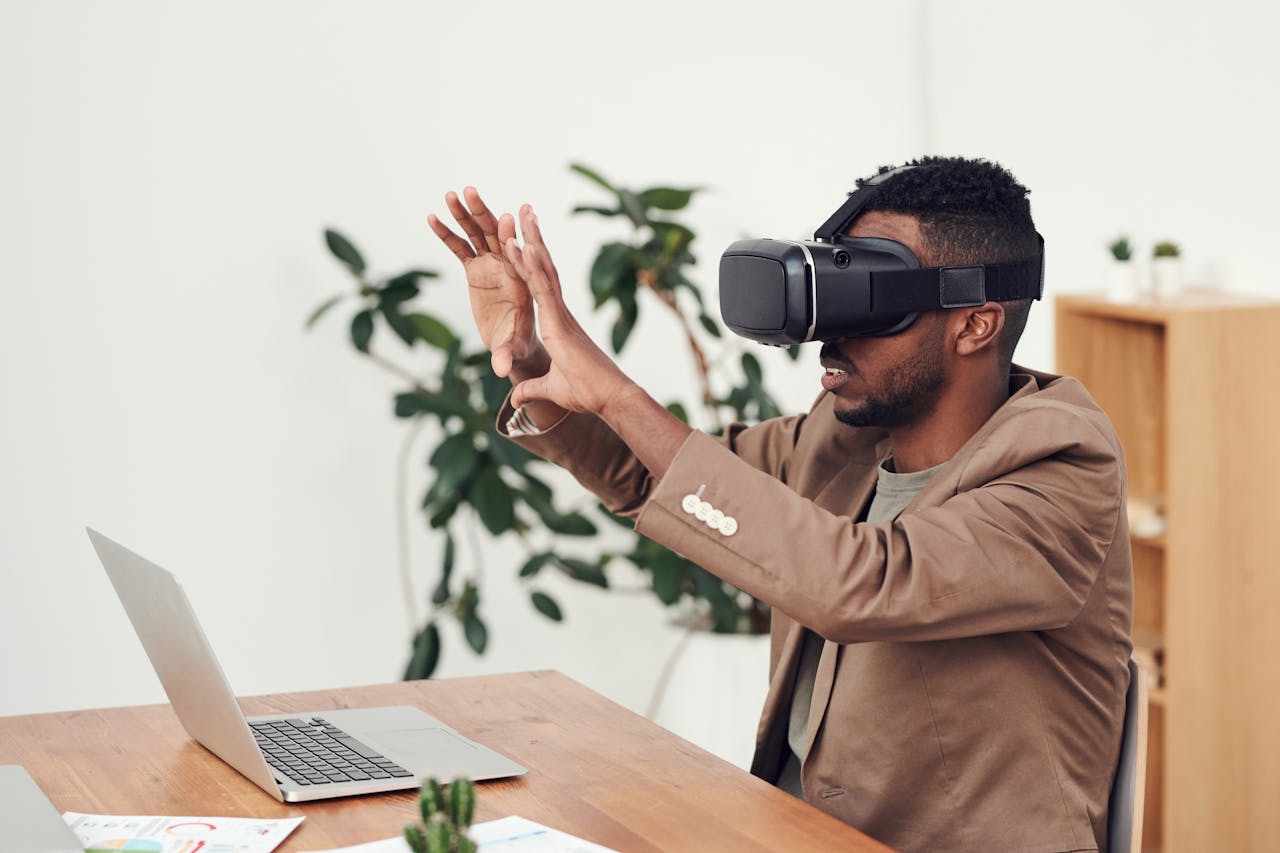The Role of Virtual Reality in Real Estate Marketing

You might think virtual reality is an anachronism, a relic from the sci-fi past. However, it's now an integral tool for real estate marketing. It's changing the way you buy, sell, and interact with properties.
VR allows you to walk through a property from the comfort of your home. It's not just about convenience, it's also about enhancing the buyer experience. You can visualize changes and make informed decisions without stepping foot on the premises.
With VR, real estate agents are offering a more immersive, personalized service. So, let's dive into the role of virtual reality in real estate marketing.
Virtual Reality: A Brief Overview
Picture a computer-generated simulation where you can interact within an artificial three-dimensional environment using electronic devices, like a helmet with a screen or gloves fitted with sensors. That's VR or Virtual Reality.
It's not just for gaming anymore. It's creeping into various sectors, real estate included.
By creating immersive, interactive experiences, VR allows potential buyers to tour properties remotely, anytime. They can explore every nook and cranny, as if physically there. It's a game-changer, transforming how properties are presented and viewed.
Advantages of VR in Real Estate
One primary benefit of incorporating VR into your real estate marketing strategy is the ability to provide immersive 3D tours.
Whether you're looking for condos in New York or apartments for sale in Vancouver, this feature allows potential buyers to explore properties from the comfort of their own homes, saving both time and travel costs.
Immersive 3D tours have numerous benefits including:
Another significant advantage is that VR can present properties still under construction. This visualization can help buyers grasp the potential of an unfinished space, ultimately facilitating sales.
The Impact on Property Showcasing
Showcasing properties becomes significantly impactful when utilizing virtual reality in your marketing strategy. It allows potential investors to explore properties virtually, creating a more immersive and engaging experience.
It's like having a 24/7 open house where clients can visit at their convenience.
Through VR, you're not just showing images or videos; you're giving a virtual tour that feels almost like a physical walkthrough. It lets clients view every nook and cranny, giving them a sense of the space and layout.
This detailed preview can lead to quicker decisions, as clients would have a better understanding of the property.
Enhancing Buyer Experiences With VR
VR also enhances your buying experience in several ways.
Virtual reality tours give you a realistic feel of the property, allowing you to:
- explore every corner at your own pace.
- experience the property's layout, without stepping outside your comfort zone.
Virtual reality can also simulate different conditions like:
- the view during different times of the day.
- the appearance of various furniture arrangements.
This immersive experience helps you make a more informed decision. It saves you time by screening out unsuitable properties, and it gives you a real sense of a property's potential.
Virtual Staging and Interior Design
VR allows you to virtually place furniture, apply paint colors, and even alter room layouts before making physical changes. This not only saves time and money but also allows you to experiment with different designs risk-free.
Real estate agents use virtual reality to stage empty homes, providing potential buyers with a realistic view of what the property could look like when furnished. This helps buyers visualize themselves in the space, increasing the likelihood of a sale.
VR can even be used to stage homes for online listings, making them more appealing to viewers.
Virtual Reality Training for Real Estate Agents
As a real estate agent, you'll find VR training invaluable in honing your marketing skills and understanding your client's needs.
VR training can:
- Improve your property presentations. With VR, you'll experience properties firsthand, just like your clients. You can also learn to highlight the features that VR showcases best.
- Enhance your client communication skills. VR lets you understand client reactions to virtual property tours and tailor your sales pitch based on their VR experience.
Future Perspectives: Virtual Reality and Real Estate
Looking ahead, the potential of virtual reality in real estate marketing is just beginning to unfold. Imagine touring a home thousands of miles away, or visualizing a property before it's even built. That's the future of VR in real estate.
It's not just about viewing homes; it's about creating immersive experiences that engage buyers. With VR, realtors can showcase properties in new, dynamic ways, allowing potential buyers to experience a home as if they were really there.
Moreover, VR can bring blueprints to life, providing a sneak peek into the future of a property.
It's clear that VR holds great promise for the real estate industry, and as technology advances, you can expect it to become an increasingly integral tool in property marketing.